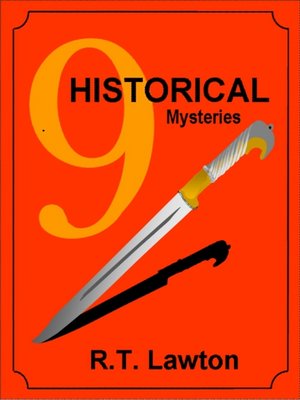 |
| Art Taylor and me trying to out-charm one another. |
I “knew” Art prior to this pairing because we occasionally crossed paths on the Internet and spoke for a few minutes at the Short Mystery Fiction Society lunch at the New Orleans Bouchercon in 2016. So, I asked, via email, if he might be interested in spicing things up. Art may look like a mild-mannered English professor, but deep down he’s quite the radical, and we kicked around several ideas.
We didn’t have an opportunity to test drive our ideas before Speed Dating began Thursday morning, so Robert and Terri Lopresti had the misfortune of being first to witness our unrehearsed song-and-dance. Art and I soon fell into a groove, though, and by the time we presented at our last table we had perfected a Broadway-worthy performance.
Rather than each of us filling a minute talking about our work and ourselves, I introduced Art and he talked about “Parallel Play” (Chesapeake Crimes: Storm Warning), a 2017 Anthony Award nominee. Then he introduced me and I discussed “Dixie Quickies” (Black Cat Mystery Magazine #1). We wrapped things up by suggesting that readers interested in learning more about our work purchase Coast to Coast: Private Eyes from Sea to Shining Sea (Down & Out Books) because they could easily compare and contrast how we took the same assignment and created radically different stories. (Art’s “A Necessary Ingredient” is nominated for an Agatha; my “Mr. Private Eye Behind the Motel with a .38” may only be eligible for an honorary Harlan Ellison longest title award.)
And here’s where this incredibly long anecdote is leading: While preparing our introductions, we needed, given the time constraints, to focus on one key aspect of the other’s writing career that would be memorable and easy to relate to listeners who might know nothing about us. In my introduction of Art, I focused on the number of awards and award nominations he’s received. In his introduction of me, Art focused on the number of short stories I’ve written.
In our emails leading up to this decision, I compared us to Walmart and Tiffany. (To stretch this analogy to the absurd: I have a store on every corner, filled with mass-produced goods suitable for every consumer; Art has only a few locations, each offering polished jewels to those with refined taste.) Art was polite enough not to agree with my self-assessment.
I long ago accepted my place in the writing hierarchy: I am a blue-collar writer, the type of grunt who gets up each morning, puts on his writer pants, and produces words.
Day in. Day out.
I do my best, my work gets published, and I’ve established myself as a solid middle-of-the-anthology, back-of-the-magazine writer who rarely misses deadlines. When I was younger, I bemoaned my place in the literary universe. I was dismayed by the world’s failure to recognize my genius (a common ailment among the young who feel the world owes them something just for participating) and was frustrated when I attended conventions and sat on panels with writers who had produced a mere handful of stories yet had somehow captured the zeitgeist of the moment.
That changed about ten years ago.
There’s nothing like heart surgery to refocus your attention on what’s important, but my epiphany, such as it was, didn’t arrive in a flash; it developed slowly. After quadruple heart bypass surgery in September 2008, three days after turning 51, I realized I was a grouchy old writer, complaining about the new-fangled publishing world and the writers who inhabit it. I also realized I had accomplished what many writers of my generation had not: I had survived—not just literally, thanks to surgery, but literarily as well. Many of the writers who captured the zeitgeist of their time were of their time and have since burned out, stopped writing, and turned to other things. By plodding along as a blue-collar writer, producing words day in and day out, I created, and continue to create, a substantial body of work.
On a personal level, I learned be happy, to enjoy what I have rather than stress about what I haven’t. On a professional level, that meant a return to writing for the joy of writing, a refocus on the creative act rather than on the end goal of publication, fame, and fortune. Surprisingly, or perhaps not to those who’ve experienced something similar, I not only enjoy the act of writing more than ever before, but I am reaping unexpected benefits.
Because I now realize the publishing world owes me nothing—that there are no prizes just for participating—I enjoy seeing my name on the cover of a magazine, I appreciate the kind words of a reader, and I share the joy of other writers’ achievements.
And if we’re ever paired up for Speed Dating, let’s try to make it fun!
Interested in playing compare and contrast? Art Taylor and I have stories in the current issue of Down & Out: The Magazine. Later this month, I will read my D&O story, “Texas Sundown,” at Noir at the Bar Dallas. Join us, 7:30 p.m., Wednesday, April 18, at The Wild Detectives, 314 W. 8th St., Dallas, Texas. In other news: “My Stripper Past” appears in Pulp Adventures #28 and “One Last Job,” wherein I discuss the genesis of my recent Alfred Hitchcock’s Mystery Magazine story “The Mourning Man,” is a guest post at Trace Evidence.















